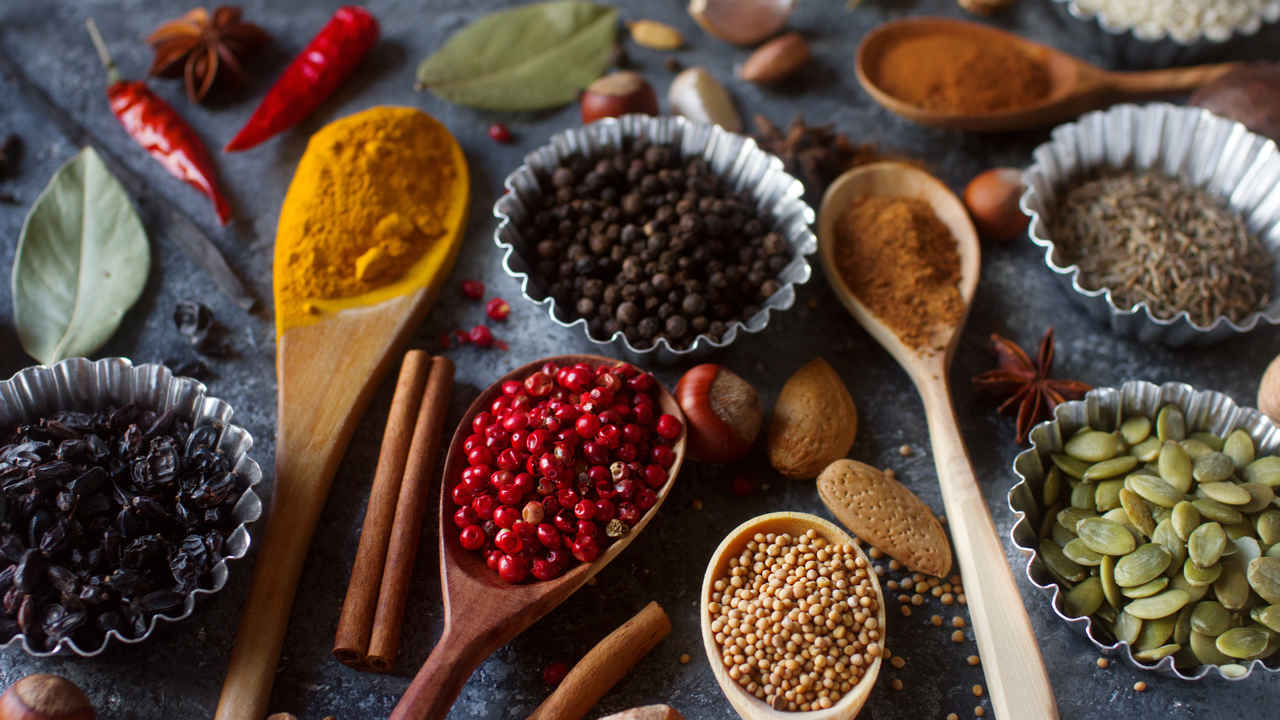
Fight the pain and inflammation of arthritis by adding these foods to your diet.
“I think the anti-inflammatory diet being talked about is generally about eating less processed foods like cookies, chips, and other snacks that can be high in unhealthy fats, which are linked with inflammation. The Food Pyramid many of us grew up with has been replaced with a colorful plate of fresh food that emphasizes proper portions. A good example of an anti-inflammatory diet is the Mediterranean diet which places a strong emphasis on fish, vegetables and olive oil as its staples. Diet is only one piece of the big puzzle of treating arthritis but has been shown to help with pain and inflammation, if followed regularly.”
An anti-inflammatory diet is not only flavorful and heart-healthy, but it can also reduce the symptoms of arthritis. Here is some advice from a registered dietitian about foods that may reduce inflammation and arthritis-related symptoms.
Herbs and Spices
Using herbs and spices to flavor your dishes not only helps limit inflammation by reducing the amount of salt and sugar in recipes, but many spices contain natural anti-inflammatory compounds. In your next recipe, try some of these:
- Turmeric
- Ginger
- Garlic
- Cinnamon
Nuts and Seeds
Most nuts and seeds are loaded with anti-inflammatory monounsaturated fats. Experts recommend consuming at least 1.5 ounces, or about one handful, of nuts or seeds daily. Some of the best varieties include:
- Hemp seeds
- Flax seeds
- Walnuts
- Pine nuts
- Almonds
Fish and Seafood
Fish is rich in anti-inflammatory omega-3 fatty acids. Many Americans eat mostly red meat and poultry and not much fish, leaving a deficiency of omega-3 fatty acids in their diets. Enjoy these varieties of fish or ask your doctor about taking fish oil supplements to reduce inflammation and stiffness:
- Wild Alaskan salmon
- Alaskan black cod
- Sardines
Beans and Legumes
Beans and legumes are rich in fiber, which has been shown to lower one of the body’s main inflammatory markers, CRP. Beans and legumes also provide the body with a healthy source of protein that’s low in fat. Some of the best sources include:
- Lentils
- Red beans
- Kidney beans
- Pinto beans
- Garbanzo beans
Fruits and Vegetables
Fruits and vegetables are loaded with antioxidants, which help stabilize cell-damaging and inflammation-producing free radicals. Variety is key when it comes to fruits and vegetables — the more colors and servings, the better!
Whole Grains
Unlike refined grain products, whole grain products are made with the individual grains intact, causing digestion of these products to take longer and reducing large spikes of glucose in the bloodstream. Replacing refined grain products for whole grain products will help you reduce the amount of inflammation-causing refined carbohydrates in your diet.
Copyright 2016-2020 © Baldwin Publishing, Inc. All rights reserved.
Health eCooking® is a registered trademark of Baldwin Publishing, Inc. Cook eKitchen™ is a designated trademark of Baldwin Publishing, Inc. Any duplication or distribution of the information contained herein without the express approval of Baldwin Publishing, Inc. is strictly prohibited.
Date Last Reviewed: August 17, 2020
Editorial Review: Andrea Cohen, Editorial Director, Baldwin Publishing, Inc. Contact Editor
Medical Review: Nora Minno, RD, CDN
Learn more about Baldwin Publishing Inc. editorial policy, privacy policy, ADA compliance and sponsorship policy.
No information provided by Baldwin Publishing, Inc. in any article is a substitute for medical advice or treatment for any medical condition. Baldwin Publishing, Inc. strongly suggests that you use this information in consultation with your doctor or other health professional. Use or viewing of any Baldwin Publishing, Inc. article signifies your understanding and agreement to the disclaimer and acceptance of these terms of use.